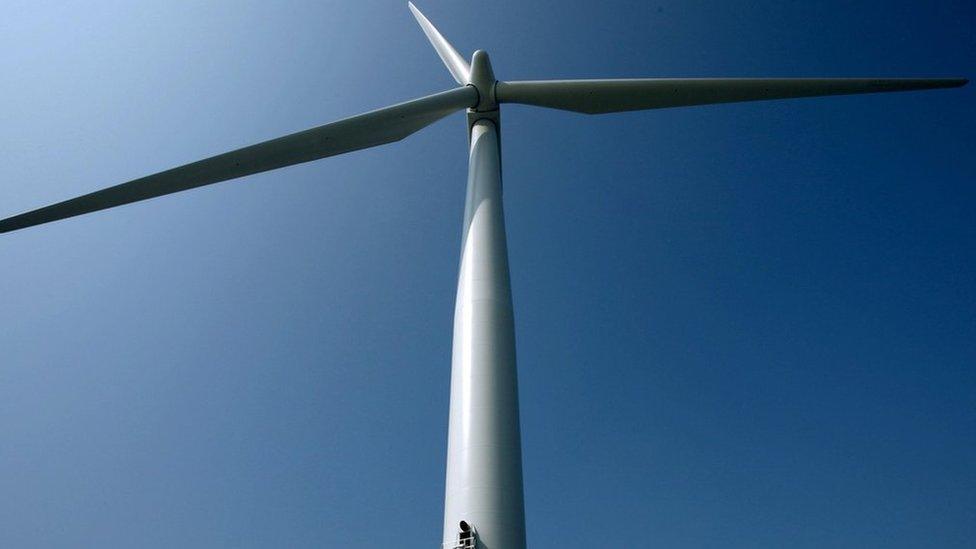Northern Ireland renewable energy generators could face revenue caps
- Published

Renewable generators like wind farms are making unexpectedly big profits
Renewable energy generators in Northern Ireland could have their revenues capped under a new government plan.
The system of marginal pricing means that the cost of the most expensive electricity generation sets the price for the entire market.
Currently that means that gas is setting the wholesale price.
As a result renewable generators like wind farms are making unexpectedly big profits.
A temporary revenue cap, which will limit the amount generators can make, is set to be introduced in the House of Commons on Wednesday as part of the Energy Prices Bill.
It is expected the legislation could come into force in England and Wales at the start of next year.
The government said the legislation also allows for "a temporary revenue limit to apply in Northern Ireland".
'Swift and decisive action'
It is unclear how that will operate in the context of the all-island single electricity market.
There is so far little detail about how the revenue cap will work, but the Department for Business, Energy and Industrial Strategy said it would launch a consultation shortly.
Business and Energy Secretary Jacob Rees-Mogg said: "Businesses and consumers across the UK should pay a fair price for energy.
"With prices spiralling as a result of Putin's abhorrent invasion of Ukraine, the government is taking swift and decisive action.
"We have been working with low-carbon generators to find a solution that will ensure consumers are not paying significantly more for electricity generated from renewables and nuclear."
SSE, which owns a significant portfolio of wind farms in Northern Ireland, said that any revenue cap must be set at a level that doesn't discourage essential investment in the UK's renewable energy sector and therefore should be comparable to other countries.
A spokesman added: "We will now work with the government on the details of the policy to ensure it meets its objective of addressing extraordinary profits without throwing away the UK's global leadership position on renewable energy investment."
Related topics
- Published30 November 2020

- Published9 December 2020

- Published13 October 2020
